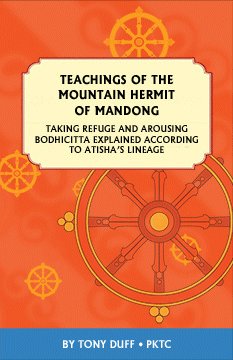Our news for April:
- All five of our major Tibetan dictionaries are now available with the new Macintosh OSX Reader
- An update of the new Macintosh OSX Reader will be sent free to customers who purchased a Mac OSX dictionary this year
- A new Kindle book is available
- A brief introduction to important texts we are preparing for publication in this coming year
All of our Tibetan Dictionaries are now available with the new Macintosh OSX TibetD Reader
We announced in our last newsletter that we have built a completely new TibetD Reader for our dictionaries for the Mac OSX platform. The Illuminator Tibetan-English Dictionary has been available with the new reader for the last few months. Now we all five of our major Tibetan-English and Tibetan-Tibetan dictionaries are available with it. • Go here for more information and to purchase.
Note that all of the MacOSX dictionaries have been reduced in price. Note also that, if you purchase more than one of our dictionaries, the new Reader has been programmed specially to handle working with multiple dictionaries.
The new OSX TibetD Reader has been praised by everyone who has used it. One user said, "It is a substantial and pleasing leap forward. It has true Mac look and feel to it". It was carefully designed to have the same look and feel as our iOS reader for our dictionaries, so that Apple users as a whole find our OSX and iOS dictionaries easy to use.
The very latest version of the new Mac OSX TibetD Reader has
substantial improvements over the first release of the new Reader
A free update for existing users of the new software will be sent out this week.
A new Kindle Book is available
We have published yet another of our books in the Kindle
A brief introduction to some important texts we are publishing this year
• We have been working on a number of important sutra texts for some time now. We published three late last year
which are crucial in studies of Other Emptiness. In addition, we have made an in-depth study of Samantabhadra's prayer,
using seven commentaries from the Indian and Tibetan traditions. The forthcoming book on the prayer clearly explains
the various issues involved and includes a fresh translation of the prayer based on these commentaries. The most
important commentaries also are included so that readers can see for themselves what the early masters explained as the
actual meaning of the prayer. One of the truly noticeable things that came out of this study is the
depth of meaning contained in the words of the prayer. The subtleties involved are brought out in the new translation,
and are very clearly explained in a major commentary written by the author, Tony Duff, which is also included in the book.
• In addition, we have been working for two years on one of the most important pieces of literature for Dzogchen
practitioners, the "Resting Up Trilogy" as it is called, by Longchen Rabjam. Each part of the trilogy is a volume containing
several works. Current practitioners will probably know of the trilogy through one of the texts of the first volume, a text
which Herbert Guenther translated under the name "Kindly Bent to Ease Us". This is often thought to be the
entirety of the work by Longchen Rabjam but in fact it is only one of several texts in the first volume of the trilogy of
volumes. Furthermore, the other texts in the first volume are crucial to understanding the text just mentioned,
and more than that, to understanding the contents of the first three volumes.
Therefore, we have prepared or are preparing translations of the other texts, so that readers will finally be able to do what Tibetans themselves do
before looking at the so-called "Kindly Bent to Ease Us", which is to read these other texts as the necessary background
to understanding that main text. For example, there is an overview text for the first volume of works, called
"An Ocean of Elegant Explanations" which details the history of the Longchenpa's writings and many other aspects
that affect the trilogy as a whole. He also clearly explains the names of the trilogy, names which have been
incorrectly understood by translators to date. Each volume of the trilogy is a "resting up". The first
volume is "Mindness Resting Up", the second "Meditative Absorption Resting Up", and so on. He gives
amazing explanations of these names, starting with the names he gives in Sanskrit, then showing how the Sanskrit
should be translated into Tibetan, and finally showing exactly why the names should be understood as just presented.
This is a major work with other translators involved. We need to pay their
salaries. We received one very helpful donation after our request for help in our last
newsletter. However, we need more funding, so if you are capable of making an offering
towards completing these works, from US$100 on up, everyone involved, including the future readers,
will benefit greatly.
I would also like to point out that, although Western practitioners have thought that "Kindly Bent to Ease Us" is an important work, it seems that the importance of this and all of the other works in the trilogy have not been recognized. If you are a Dzogchen practitioner or interested in being one, this trilogy is one of the most important works to be studied in preparation for the journey. Its importance is shown by the fact that the shedras or colleges for study at Nyingma monasteries always include this trilogy or parts of it within their general curriculum.
Yours,Lama Tony Duff, Director,
Christopher Duff, Manager,
Tamash Agocsh, Translator
Padma Karpo Translation Committee
